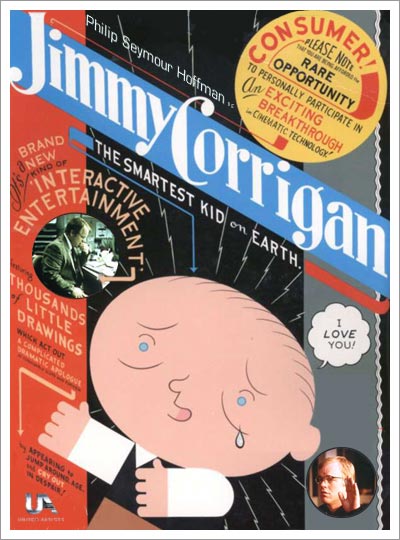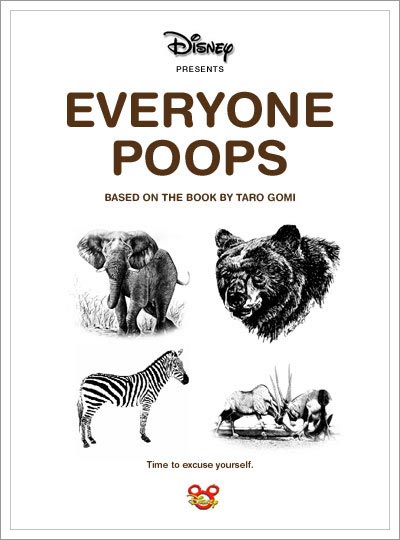
The Stranger Not surprisingly, the novels of Albert Camus are not often adapted into movies these days. The dense, cerebral plots and and deep intellectual themes don't lend themselves easily to the modern silver screen. 1992's The Plague successfully evoked the despair and desperation of the novel, but only by reducing many of the salient characters to single-dimension entities. And we won't even get started on Caligula.
Rob Reiner, that lovable meathead, has decided to take on the most popular of the old Frenchman's works, The Stranger, in an apparent attempt to remake his image as a maker of light comedies into something with more gravitas. He hasn't entirely succeeded, but he's certainly added an interesting twist to his body of work.
In Reiner's hands, the melancholy tale of a man who has no feelings for the rest of mankind -- the pure existentialist of Camus's book -- gets an injection of humor and soul, due in large part to the choice of Roberto Benigni as Emmanuel Meursault. Jean Reno is the hot-tempered Raymond, Steve Buscemi is sentimental Salamano and Juliette Binoche is Meursault's female (but not love) interest, Marie. Benicio del Toro rounds out the fine cast as the antagonistic Arab whose death turns Meursault's life upside down.
Benigni has it in himself to play it straight -- in Life is Beautiful, for instance -- but he's never able to fully extinguish his inner clown, and Reiner allows him to imbue Meursault with a warmth that would seem at odds with the character's supposed cold logic. Benigni's pantomimes and sly, subdued slapstick do make Meursault someone we can identify with, and makes his apparent lack of reaction to his mother's death all the more suspicious. When the film rolls along to the murder trial that makes up the third quarter of the film, the audience is as torn as the jury over whether the criminal before us acted out of repressed emotion or if it truly was a cold-blooded murder.
Ultimately, however, this characterization is at odds with the Camus's story, and the existential conversations between Meursault and his lawyer and, later, the champlain the night before his execution ring sour. Reiner can't have it both ways -- The Stranger can't be simultaneously a heartwarming tragedy and a denial of human emotion. Even the locations feel like two different movies -- cold, harsh lighting in the courtroom and prison clash with the warm tones of the Southern French town of the first half. The prison scenes are particularly brutal, as Benigni struggles to express the mental state of someone who has rationalized the universe to within an inch of its life. It clearly goes against the grain of this man who once played Pinocchio, just as the subject matter proves to rough for its director to polish down.
-AH

Jimmy Corrigan: The Smartest Kid on Earth
BAM! POW! ZAP! Philip Seymour Hoffman continues to mine his own peculiar brand of soulful melancholy for all its worth in the new film adaptation of Chris Ware's "graphic novel" (that's "comic book" to those of us capable of reading real books) Jimmy Corrigan: The Smartest Kid on Earth. While I�ve never read the comic book, or any comic book for that matter since grade school, this third pairing of director Miguel Arteta and screenwriter Mike White, who previously worked together on the hilarious Chuck & Buck and the painful, laugh-free Jennifer Aniston vehicle, The Good Girl, features Hoffman playing the title character, a down-on-his-luck nobody who flies to Michigan after receiving a letter from his father (Dom DeLuise, in a doomed attempt to resuscitate his career � la Burt Reynolds in the highly overrated Boogie Nights), whom he's never met.
In Michigan, Jimmy also meets his adopted sister and his grandfather, but the flow of the all-too-obvious "plot" is repeatedly interrupted for an unnecessary, interminable flashbacks to his grandfather's youth (centering on the 1893 Chicago World's Fair), which is every bit as uninteresting as our "hero's." Jimmy's life is such an unimaginable bore, save for a handful of lame and occasionally grotesque imaginary flashes essentially ripped off from Ally McBeal, that it's hard to imagine that children would find a comic book about such a pathetic loser at all interesting, and Arteta doesn�t even grace us with the effort to make it all visually interesting.
While Hoffman�s undeniable abilities are well displayed -- indeed, in pretentious drivel such as Magnolia to works of sheer brilliance like Love Liza, he is nothing if not reliable -- but the camera even seems to avoid showing any of the secondary characters' faces, serving to isolate Jimmy (and us) from them almost entirely. Long, motionless takes painted in dull hues are a far cry from the dynamic, brightly-colored imagery of the comic books I recall reading as a child (when one should be reading such drivel), while bizarre, unneeded intertitles reading "AND SO," "BUT" or "MEANWHILE" only seem like an effort to set back the language of the film medium by several decades. "Seinfeld's" Patrick Warburton cameos as quite possibly the worst Superman in the history of film.
-GMcA

Everyone Poops
For those of you not in the know, Everyone Poops is an extremely popular children's book that serves to inspire toddlers in the direction of successful potty training. Its splotchy, brightly colored illustrations and simplistic prose are very cute, awfully sweet, and slightly gross.
Leave it to Disney to adapt a relatively short and repetitious book into a relatively long (90+ minutes) and repetitious movie. In this live-action, direct-to-video offering many cute and fuzzy animals (not to mention scaly reptilian ones) evacuate their bowels in the North Woods, on the Serengeti, and in many other scenic locales. Too many, in fact. There were 75 animals, by my count. One can only watch so much squatting before fatigue and boredom set in. Not to mention disgust. The film's intended audience of 2-year-olds must wither after the 30-minute mark as well. Which is a shame because they'd miss Tanya Polenski (the little girl who narrates the movie) in the final segment where she manages to potty like a big girl -- bringing the film to its triumphant close.
There are some novel aspects to Everyone Poops, though. Take the stock footage that compose most of the film: outtakes from the kitschy Disney documentaries made during the '50s and '60s, beautifully restored to their original Technicolor luster. More engaging are the mastodon and tyrannosaurs segments: Pixar animators have taken it upon themselves to render these animals' excretory actions with utter realism, all while seamlessly employing the Technicolor palette used throughout the rest of the film. Still, the CGI artistry seems overwrought and wasted over such base activities as these.
Despite all this, the film has developed an almost fanatical following from an unexpected audience. Hipsters across the country are gobbling up copies of this movie for its absurdist and trivia value with the same passion that Goths from the generation previous gobbled up copies of the Jane Fonda vehicle, Barbarella. The absurdity of a film devoted to animals -- and one successful little girl -- purging their posteriors for the sake of posterity? The bizarre fact that Walt himself kept these outtakes in his personal film vault for review at his leisure? What hipster could resist knowing that old Walt Disney was something of a scat fetishist, and sharing that clever factoid with his fellow hipsters?
Quentin Tarrantino has even gone so far as to petition Disney -- successfully -- for screening copies of the film to hit the festival circuit. In fact, Everyone Poops played this year's Cannes Film Festival where, unsurprisingly, it did not fare well with the jury and met with lukewarm audiences -- though Quentin himself gushed over the film's supposed comic genius.
Hipster credibility aside, though, this really is a bland, boring movie. How interesting is it, really, to watch a menagerie of animals shit for your pleasure? Unless, of course, you're Walt Disney...
-BH





